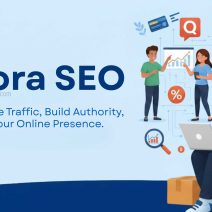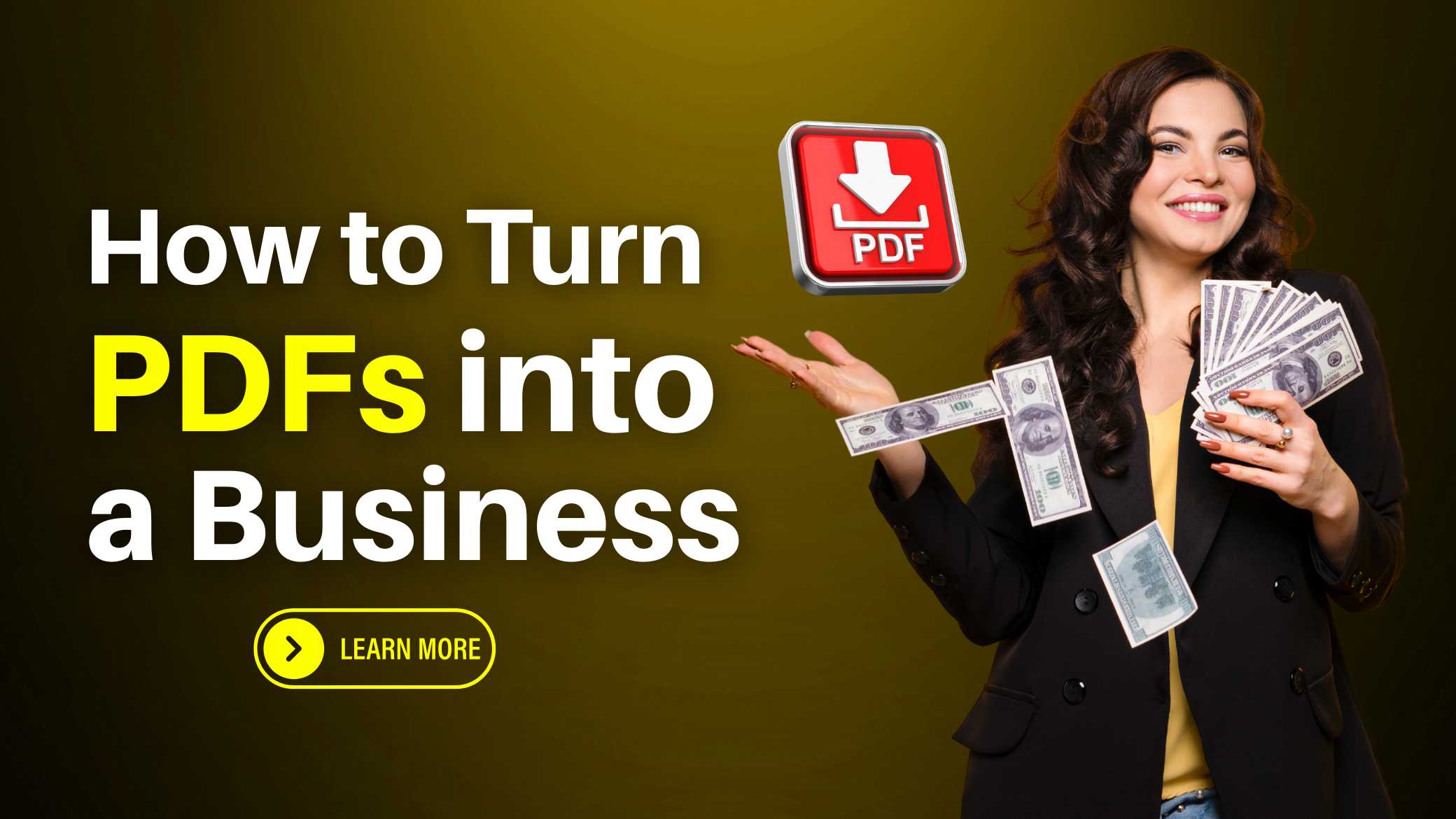
Is Selling eBooks Still Profitable in 2025 ? : Comprehensive Guide
Selling eBooks Still Profitable : In the ever-evolving digital landscape, entrepreneurs, marketers, and creators are constantly searching for scalable and passive income streams. Among the most accessible and popular has been selling eBooks. But with rising competition, growing trends in AI-generated content, digital subscriptions, and changing reading habits, one vital question persists in 2025: Is selling eBooks still profitable? The answer, though layered, is a resounding yes — but only if done strategically.
Table of Contents
This comprehensive guide will explore the current state of the eBook market, emerging trends, top platforms, marketing strategies, and tips for building a sustainable eBook business in 2025.
The Current State of the eBook Industry in 2025

The global eBook industry is far from dead — it has simply matured. According to recent industry reports, the global eBook market is projected to reach $35 billion USD by the end of 2025, with Asia-Pacific, North America, and Europe leading the charge. The growing penetration of smartphones, Kindle devices, and tablet readers has enabled wider access to digital books than ever before. Additionally, the rise of self-publishing platforms like Amazon KDP, Gumroad, Payhip, and Notion-based selling has lowered the entry barrier for aspiring authors, educators, and digital product sellers.
Also Read : How to Create and Sell Ebooks Online
However, the nature of competition has evolved. Gone are the days when simply writing a 50-page PDF and uploading it could make you thousands. Today, successful eBook businesses rely on data-driven marketing, unique value propositions, authority-building, and community-driven engagement. In 2025, profitable eBook sellers understand content trends, reader psychology, niche marketing, and product diversification.
Why Selling eBooks Is Still Profitable in 2025
Let’s break down the key reasons why eBooks continue to be a high-ROI digital product in 2025:
1. Low Overhead Costs and High Profit Margins
eBooks are digital assets. Once created, the cost of selling them is almost negligible compared to physical books. There’s no inventory, no shipping, and no recurring manufacturing costs. This makes the profit margin per unit incredibly high — often above 80-90%.
2. Scalable Passive Income Model
An eBook, once launched successfully, can continue generating revenue for years with minimal effort. Smart creators bundle eBooks with courses, memberships, or lead magnets to maximize revenue and automate their sales.
3. Global Reach
With platforms like Amazon Kindle Direct Publishing, G Play Books, Apple Books, Kobo, and niche sites like Gumroad and Leanpub, you can reach millions of global readers without needing a publisher.
4. Niche Audiences Are Growing
People crave specialized content. Whether it’s a keto diet guide, personal finance tips, digital marketing blueprints, or productivity hacks — niche eBooks targeted at micro-audiences are thriving in 2025.
5. Personal Branding and Authority Building
Selling eBooks helps creators establish authority in their domain. Coaches, consultants, and entrepreneurs use eBooks as trust-building tools to gain speaking gigs, coaching clients, and media coverage.
Top eBook Niches That Are Profitable in 2025
Profitability depends on topic selection. In 2025, the most successful eBooks tap into either evergreen needs or trending knowledge gaps. Here are the high-performing eBook niches:
- Health & Wellness (e.g., intermittent fasting, mental health, biohacking)
- Finance & Investing (e.g., budgeting, crypto, stock market strategies)
- Digital Marketing (SEO, funnels, AI-driven advertising)
- Side Hustles and Online Income (freelancing, dropshipping, affiliate marketing)
- Technology & AI (prompt engineering, coding, automation guides)
- Self-Development (time management, confidence, goal-setting)
- Career & Resume Building (LinkedIn mastery, freelancing for beginners)
- Parenting & Education (homeschooling, parenting in the digital age)
- E-commerce and Shopify Playbooks
- Spirituality, Minimalism, and Mindfulness
Selecting a niche with a clear problem-solution structure, targeted pain points, and a well-defined reader persona is key to profitability.
Where to Sell eBooks in 2025 – Best Platforms

Choosing the right distribution platform can make or break your eBook’s success. Here’s a rundown of top platforms for 2025:
1. Amazon KDP (Kindle Direct Publishing)
Still the largest marketplace. Pros: massive traffic, free publishing, royalties up to 70%. Cons: high competition, limited branding control.
2. Gumroad
Perfect for creators who want to own the customer relationship. Offers direct payments, email collection, and subscription capabilities.
3. Payhip
An alternative to Gumroad with features like discount codes, upselling, and affiliate programs.
4. Your Own Website
Using tools like WooCommerce, Shopify, or Kajabi allows full control, better margins, and cross-selling opportunities.
5. Etsy (for aesthetic or niche guides)
Still works great for digital planners, DIY books, and visual guides.
6. Notion & Canva Template Marketplaces
Hybrid eBook-template combinations are booming. Selling knowledge in structured, interactive templates is a hot trend in 2025.
How to Market and Sell eBooks Successfully in 2025
Creating the eBook is just 20% of the battle — marketing is where the magic happens. Use a mix of organic and paid strategies to reach your audience effectively.
1. SEO Blogging & Content Marketing
Build a niche blog and optimize for long-tail keywords like “how to budget on a low income eBook” or “freelance career starter guide.” Embed eBook CTAs within your blog content.
2. Email Marketing Funnels
Capture leads via free downloads or previews and upsell your full eBook. Tools like ConvertKit and MailerLite automate this flow.
3. Use AI-Powered Content Distribution
Use tools like Jasper, Koala, or ChatGPT to create micro-content (tweets, reels, carousel posts) from your eBook and share it across channels.
4. Affiliate Marketing
Set up an affiliate program for your eBook and offer creators a percentage for every sale they bring. Gumroad and Payhip support this natively.
5. YouTube and Short Video Platforms
Break down your eBook’s topics into bite-sized content. Add links in descriptions, drive viewers to your landing page or Gumroad store.
6. Pinterest Marketing
Pinterest drives long-term SEO traffic. Design pins for chapters or topics within your eBook.
7. Influencer Collaborations
Collaborate with micro-influencers in your niche to promote your eBook. Offer commission-based incentives.
8. Use AI to Build Personalized Journeys
Personalized retargeting via email sequences and AI-powered ad targeting (Meta, G Ads) helps boost conversions.
Mistakes to Avoid When Selling eBooks in 2025
- Generic Titles and Topics: Go niche, specific, and value-driven.
- Poor Formatting: Use clean layouts, mobile-responsive designs, and readable fonts.
- Lack of Marketing: “Build it and they will come” doesn’t work anymore.
- Ignoring Feedback: Regularly update your eBook based on reviews and feedback.
- No Sales Funnel: Direct selling without warming up your leads leads to low conversions.
- Low-Quality Cover Design: Invest in professional, high-contrast eBook covers.
Advanced Monetization Strategies for eBook Creators
Don’t stop at a one-time sale. Turn your eBook into an ecosystem of monetization:
- Sell bundled products (eBook + course + workbook)
- Upsell a video masterclass
- Create a membership or community
- Offer coaching or consulting services
- License your eBook for corporate or educational use
- Use print-on-demand for physical versions
Many successful creators are now embedding interactive components, quizzes, worksheets, and downloadable resources inside their eBooks, increasing value perception.
Real Examples of Profitable eBook Models in 2025
- Digital Marketing Agencies offering eBooks as lead magnets to attract business clients.
- Coaches and Consultants selling niche eBooks like “How to Build a Coaching Funnel.”
- Fitness Influencers offering PDF-based diet & workout plans.
- Finance Creators selling investment strategy eBooks bundled with calculators.
- Educators selling eBooks + Notion template bundles on productivity and career growth.
These real-life sellers focus on branding, funnel-building, automation, and user engagement — making their eBooks both a revenue source and a marketing tool.
Conclusion: Is Selling eBooks Still Profitable in 2025?

Yes — selling eBooks remains highly profitable in 2025, but only if approached with strategy, clarity, and creativity. The digital marketplace is saturated, but readers are hungry for niche-specific, actionable, and value-packed information. By focusing on the right audience, leveraging modern tools, and building a full-stack funnel, creators can generate passive income, build authority, and scale their online presence through eBooks.
Buy Now : Ecommerce Website
The real winners in 2025 are those who treat eBooks not just as a one-time product, but as a gateway to a broader digital business — one that involves trust, value, automation, and customer-centric innovation.
Disclaimer: This article is for educational purposes only. Earnings from eBooks depend on multiple factors including niche, effort, marketing, and audience targeting. Always do your due diligence before starting a digital business.
Keywords : Selling eBooks Still Profitable – Selling eBooks Still Profitable 2025 – Selling eBooks Still Profitable Guide








